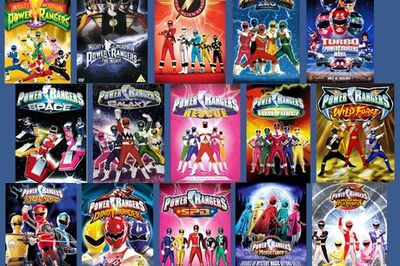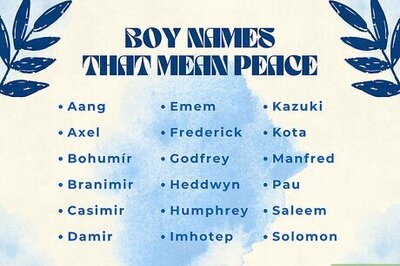
views
Two decades and three bestselling novels later, author David Ebershoff says the process of writing, for him, is still pretty much the same: messy, riddled with mistakes and full of uncertainties.
David broke into the literary circle with his debut novel "The Danish Girl", which was adapted into an Academy Award-winning film of the same name in 2015, starring Eddie Redmayne.
The writer says over all these years, when he sits down to translate his thoughts into words, the process continues to be excruciating.
"Writing is a messy process for me. It involves a lot of uncertainty, thousands of pages no one will ever see, it involves lots of mistakes, bad writings, and most of it is sorted out before it goes out in the world as the work of the author.
"When I speak to younger writers, I share my own uncertainties, doubts, errors and mistakes with them because I want them to know that what they are going through, I still go through. I always go through a significant amount of self doubt, 'Can I do this? Do I have the skills? Am I smart enough?'" David told PTI in an interview.
He was speaking on the sidelines of the ninth edition of Tata Literature Live! here.
Post "The Danish Girl", David went on to write "The 19th Wife", "Pasadena" and a short-story collection, "The Rose City", all of which were critically well received.
The author says it is important for him to shrug off success before he starts working on his next project as he cannot venture into a book with the "pressure to succeed" all the time.
"I try to think what's a good story. What hasn't been depicted and what do I have to say. What this does to me, is that it doesn't let me carry any sense of success into the next project.
"If I went into the next project thinking this has to be more successful than something that I've previously done, I think, it won't be organic anymore," he says.
Though David has carved a niche ever since his debut as an author in 2000, his work in "The Danish Girl" is often regarded as extremely influential in shaping the LGTBQ literature in recent times.
The novel is a fictionalised account of the life of Lili Elbe, one of the first people to undergo sex reassignment surgery.
"When I first came across her story almost 20 years ago, she wasn't widely known. She didn't have a proper place in history. I remember thinking when I first read about her, that it's very difficult for many trans people to become themselves, even now.
"I thought how did almost century ago someone, who had no role models, no organisation speaking out on her behalf, no representation in the media, no hashtag or rainbow, know who she was? I was interested in how did she take the steps to become her true self with such certainty," he says.
David says the film adaptation ensured that the story "crosses boundaries and regions" and reaches to people who otherwise would have never known about Elbe.
"With the book and then very much with the movie, many people knew who she was, what her life means. Her life means a lot to so many people now and that change means a lot to me personally. If people today know her story, that's a victory for me," he adds.
David is currently working on his next novel but remains tightlipped about it.
"I wanted to be a writer ever since I was in my early teens. Till my late 20s, no one asked me about my writing, no one was interested. So I'm touched when people ask what I'm working on, but I am not going to reveal anything about it."




















Comments
0 comment